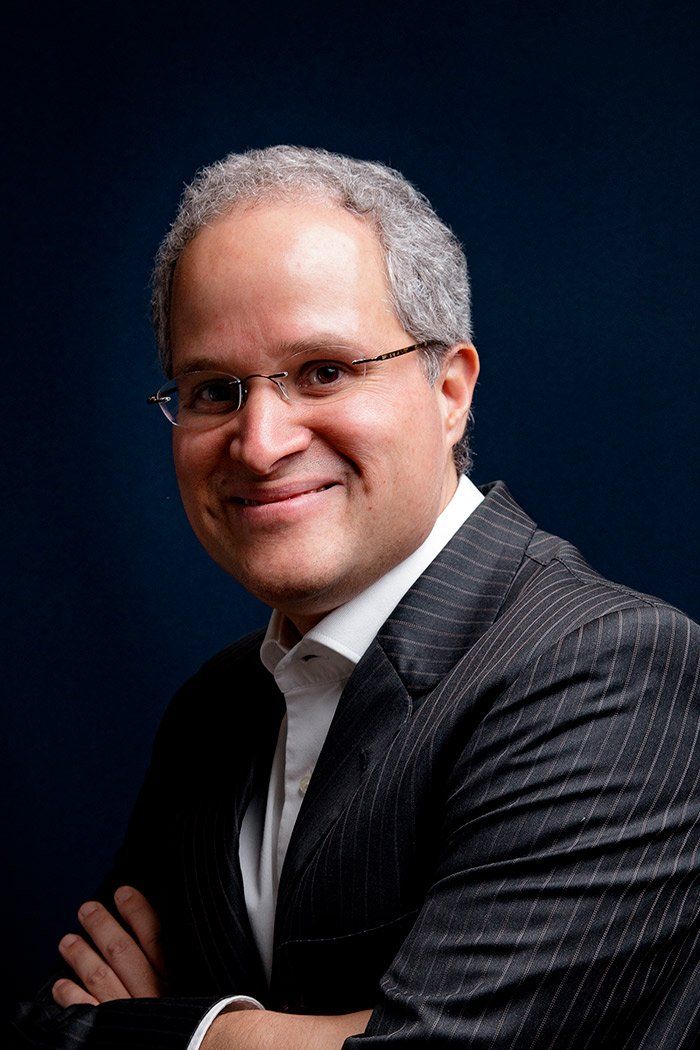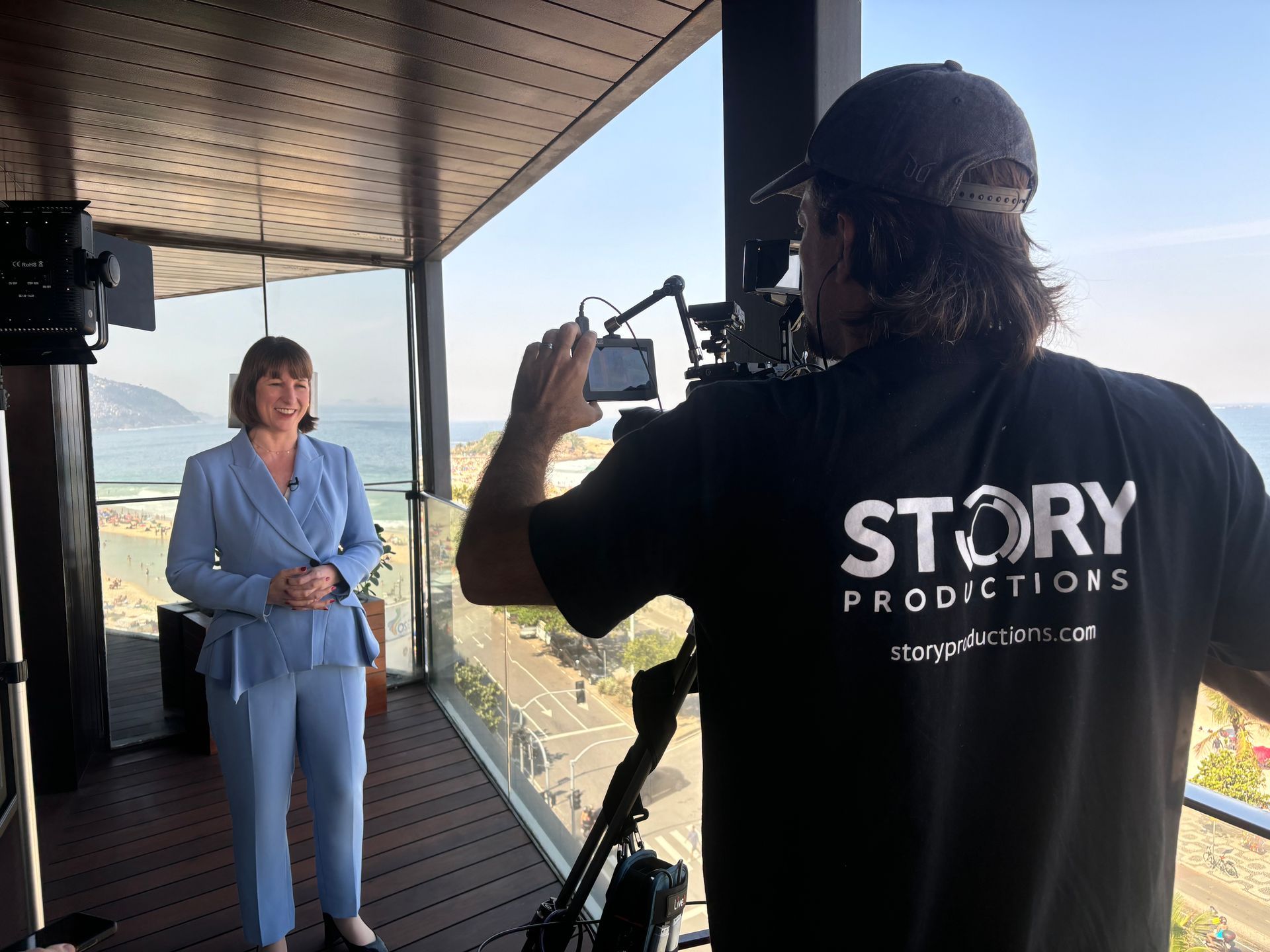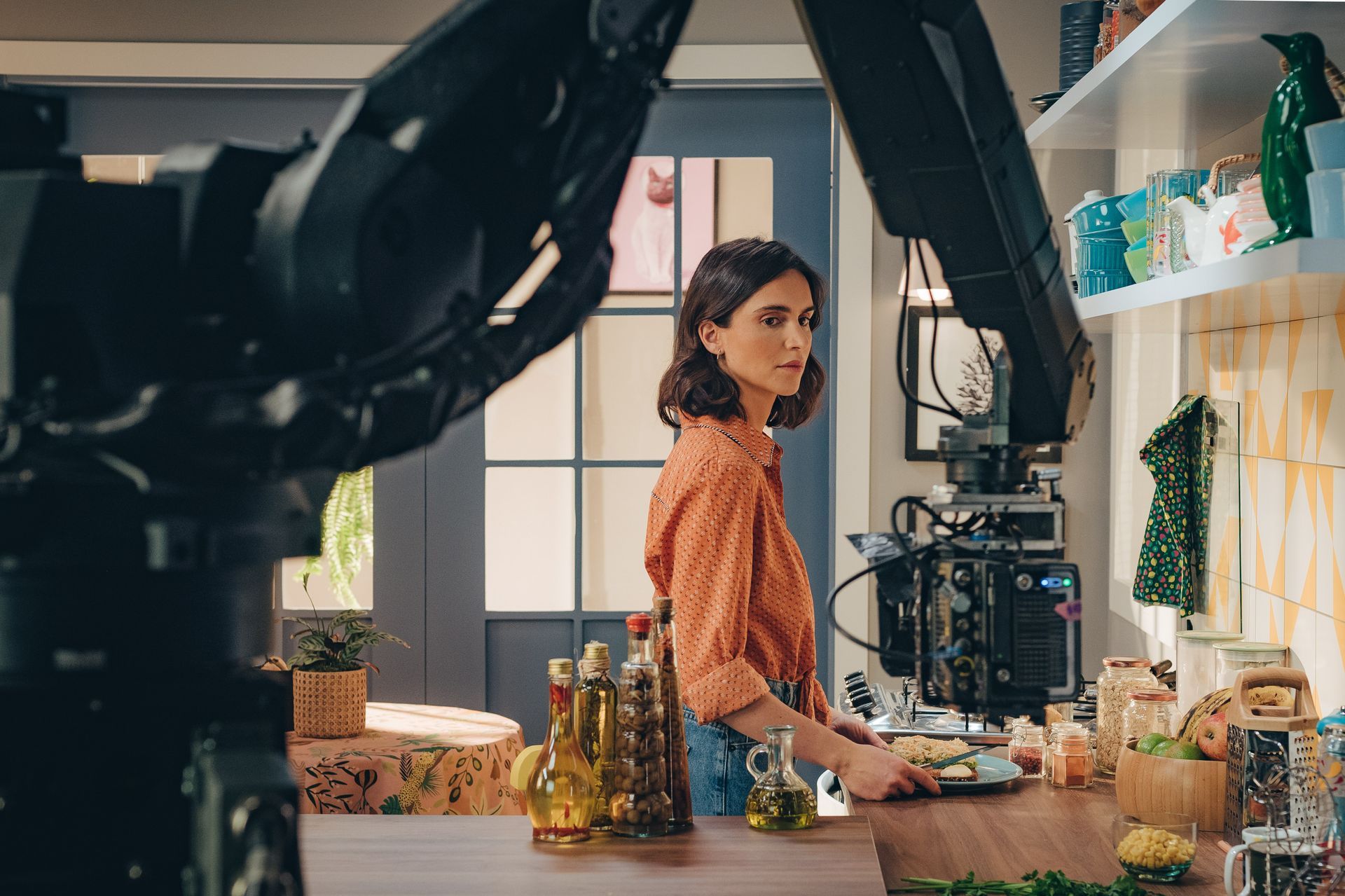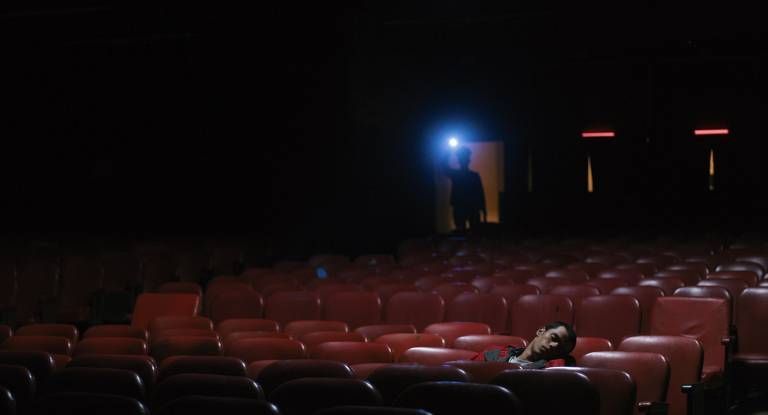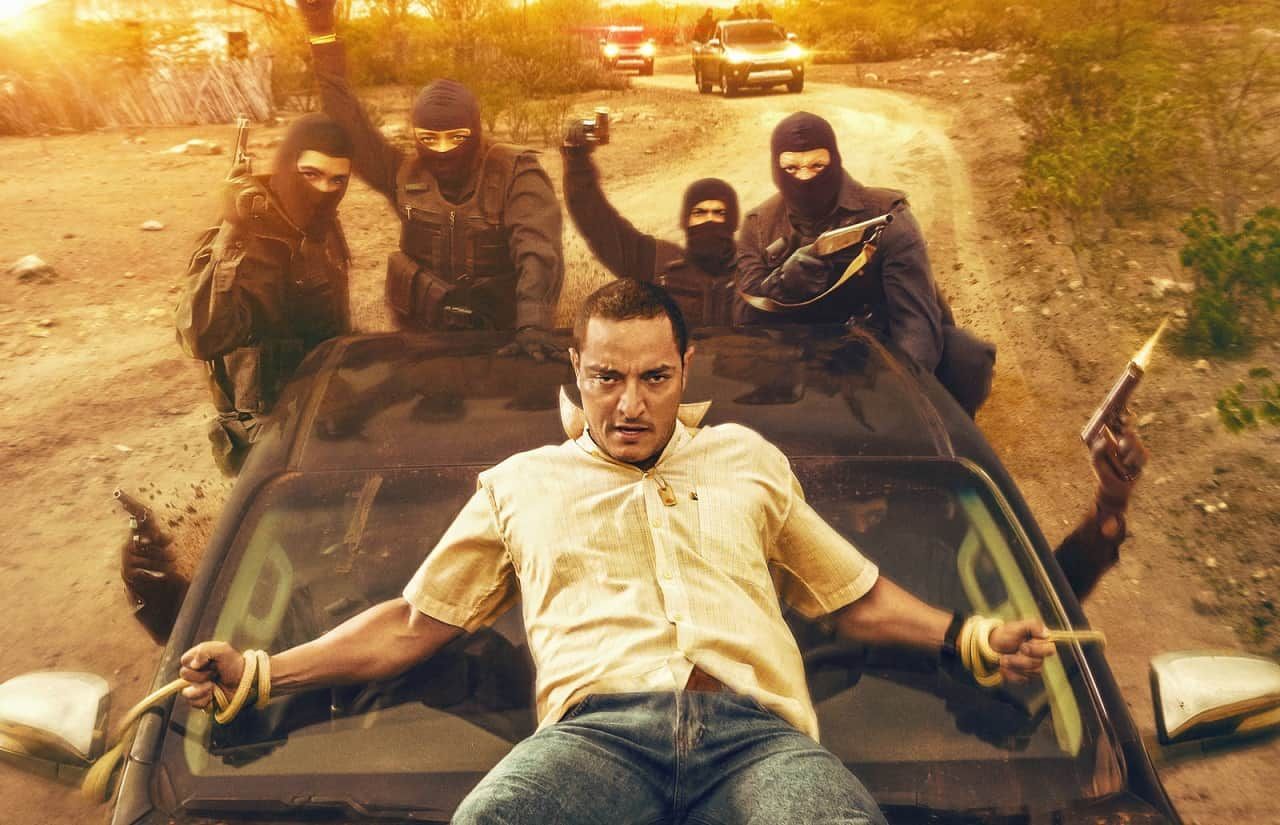Story Productions: What is the current state-of-play for the audiovisual sector in Brazil amid the pandemic?
Salinas:
Well, nearly all the large productions have stopped, except for the 24-hour news industry which continues, but other forms of content have mostly stopped. There is no clear view yet on when productions will resume. There are some proposals on how to resume operations but we still don’t have a definite idea of when this will happen, or under what conditions. Several productions that had all the necessary approvals and permits to proceed were interrupted as a result of quarantine measures.
SP:
What are the legal implications for production companies?
Salinas:
For production companies, besides the practicalities of implementing safe filming protocols once the quarantine is lifted, there are legal questions to consider. For example, what liabilities will industry players face, what will insurers cover and not cover, and what will the cost of insurance be? If someone on a crew contracts the virus, what will be the liabilities and with whom will they lie?
These questions are still open. What is clear is that the whole supply chain, from the network that commissions the production to the individuals who produce it, will need to adapt to the changes. Some consensus is forming about certain issues, basic legal orientations for example.
SP:
What are the insurance implications for productions during the pandemic?
Salinas:
Some insurers will end up covering the costs of interruptions in shoots or productions. However, it is highly unlikely that the insurers will want to reimburse a producer if someone in the shoot contracts Covid-19 and production is interrupted. The insurers that cover individual health, however, if someone has an injury of some sort, are going to be more willing to cover this kind of event when someone gets sick. There is some discussion about this. Insurers that end up suffering substantial losses from contracts that cover the interruption of a production because of someone contracting Covid-19 will be much more resistant to assuming this risk going forward
under new contracts. So, insurance coverage is going to change to reflect the added risks from a pandemic like Covid-19.
SP:
What about the legal responsibilities for individual producers?
Salinas:
If coronavirus becomes endemic, like the flu that never goes away entirely as a risk, individual producers will have to make accommodations to assure that work is safe. They will have to test people on the shoot for symptoms of the virus at a minimum, take their temperatures, provide personal protection measures that show that they are making a reasonable effort to assure the safety of the entire crew. These are the minimum legal requirements for producers to avoid being characterized as negligent: to protect the health and safety of his or her crew and provide a safe workplace.
Any basic, fundamental legal discussions will ask whether the employer took all the possible precautions that could be taken reasonably to provide safe working conditions. This allows reasonable deniability of fault or liability on the part of the employer - and contractor in cases of small productions which hire people via civil contracts instead of labor agreement - because if a person gets sick during a production, it is very possible that they could have contracted the virus from an interaction with others outside the work environment. Clearly defining the causality of an employee getting sick because of the virus will be difficult to prove in court in any eventuality. But the producer must take precautions to reduce risks of liabilities.
For this reason, it’s prudent for the employer be able to prove that all the necessary precautions were adopted to provide for the safety of employees and the work environment. This includes receipts for cleaning services and masks, employees responsible for cleaning equipment and sets, the purchase of tests or infrared thermometers and so on. Productions will become more expensive as a result of the added measures of course and also because of the insurance depending on the coverage of the policies, especially if they have coronavirus components.
SP:
What precautions can production companies and news crews take now before there is more clarity from unions, insurers, and authorities about the resumption of work?
Salinas:
The first recommendation is to test people in the production crew. Second, you need to adopt the use of masks, good masks not just anything that looks like a mask, and also the use of hygiene precautions like the use of disinfectants and alcohol gels. The locations and equipment have to be cleaned as best as possible to reduce the chance of contamination. Supplies will have to be provided for cleaning and hygiene. These are the basics that have to be provided. If the employer fails to take these fundamental precautions, they will bear more of the risk if someone gets sick, without a doubt.
SP:
What about the employees' responsibilities?
Salinas:
The employee will have to take responsibility to follow the basic safety and sanitary protocols, and if he or she refuses or doesn’t follow the precautions, he or she will take on more of the responsibility in the eventuality of getting sick. It’s still unclear how the courts will assign liabilities if someone gets sick or if an employee’s relative gets sick and eventually dies. Sometimes the local legislation or norms will be insufficient, and the employer will have to show that they took all the necessary precautions where possible to reduce the risk.
SP:
The unions and associations in the Brazilian audiovisual sector are drawing up a detailed safety protocol for filming during coronavirus. What kind of authority will a document like that have for the producers, especially if there are other official regulations and
guidelines?
Salinas:
These norms between the industry players – producers, technicians, unions, insurers and other agents – become valid and binding for each segment when they have been signed by the entities involved and then accepted by the regulating authorities. We know that not all conflicts arising out of contracts and hirings will be settled in the labor courts though, depending on the type of contracts. If the hiring companies or the workers that belong to unions have signed on to the best practices norms for the industry, they must follow and obey the norms. It's also important for contracting companies to prove that they are following the norms. That they are providing and using masks, gloves and cleaning. You can’t just follow the norms. You must prove it to protect your operations.
SP:
How will producers provide this proof? How do we manage the risk of working with high-risk groups if they end up getting sick?
Salinas:
There are discussions underway over how the industry is going to adapt to the new reality that the pandemic has brought, on several levels – how companies will organize and how they will prove they are taking all necessary measures. So the impact of the virus is not just on the bilateral, contractual relations between the producer and his or her hire, or technician, it spreads over the entire production chain from the agent that commissions the work to the producer and all his or her hires, including the insurers.
The courts have trouble dealing with these kinds of system-wide problems, though. They do OK with bilateral relations but not with liabilities that run through the entire production chain. This makes everyone extra vigilant about whether the system is able to function. The only way to mitigate risk in these circumstances is for everyone to pursue risk mitigation together.
It will require diligence on the part of the producers; they will have to document and keep better records of their goods and services as well as taking the precautions. There will have to be added considerations about how the production crew will engage with high-risk groups such as the elderly.
SP:
Can a production company inform its employees about the necessary safety precautions and ask them to sign an agreement that they will follow the precautions, both at home and on the set? But then it's a question of good faith?
Salinas:
Exactly. Employees have to understand the regulations that the production company has put in place… and these will apply on and off the set. Definitely. They have to know that. They have to prove that they have that understanding (of the regulations).
SP:
How will production companies deal with crews coming from overseas?
Salinas:
I don't know about the details technically or medically, but I imagine that you need to test them on day one, at the start of the production, so they don't infect anyone. There are many types of tests, you need to know exactly which type of test is most appropriate. The production company will have to get a medical opinion about monitoring in practice. I think it will involve taking a test initially and then following up with temperature monitoring regularly.
SP:
Is it legal to test all crew members? How often will tests need to be repeated?
Salinas:
When it comes to continuous testing over the course of a shoot, these are clinical, or medical, considerations. I imagine it would be possible to do a test on day one, and for the result of that test to be ready in 12 hours, or a day, to give you information on whether that person is infected. But how do you do that if you're filming for a week or a month? I think it probably doesn't make sense for you to test everyone every day. So, it seems like the most reasonable approach is to measure the crew's temperatures to keep control of things, to verify that - OK, so they were tested yesterday and didn't have symptoms, they were not infected yesterday. Today, their temperature is normal, so they carry on. It's a medical question so would need a doctor to verify that approach.
SP:
Can crew members refuse to do a test?
Salinas: Following on from the approach above, if someone refuses to do a test, it's unfeasible for them to take the job. Because you can't put everyone involved in the production at risk. So, I don't think that can happen and the producer should refuse to hire that person.
SP:
Should every shoot have its own separate feasibility study depending on the location, to assess the hospital capacity and how the lockdown guidelines are impacting access?
Salinas:
The Supreme Court recently decided that states and municipalities have the autonomy to determine health regulations. So, what that means is that you can have a strict lockdown in a city in the Northeast but not in São Paulo. Cities have the autonomy to guide health regulations. That's something that seems to have happened in a city on the São Paulo coast, they put up sanitary barriers at the entrance. This is something that the Supreme Court only recently enforced in cities and municipalities, precisely because different states have quite different conditions in their hospitals. There are municipalities that don't have beds in intensive care, or have very little. So, these municipalities had to enforce sanitary barriers. So you have to evaluate every municipality for every shoot you plan. The challenge will be that the situation in each municipality could worsen rapidly, so we have to study each case. There's no way of getting away from that.







